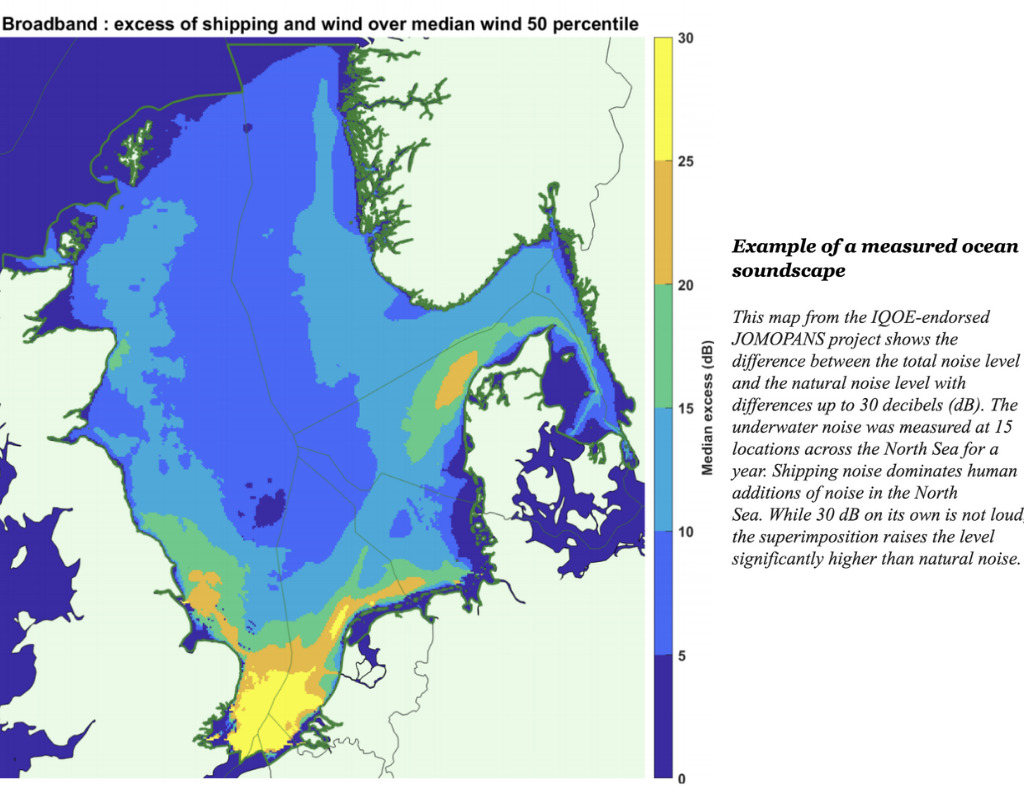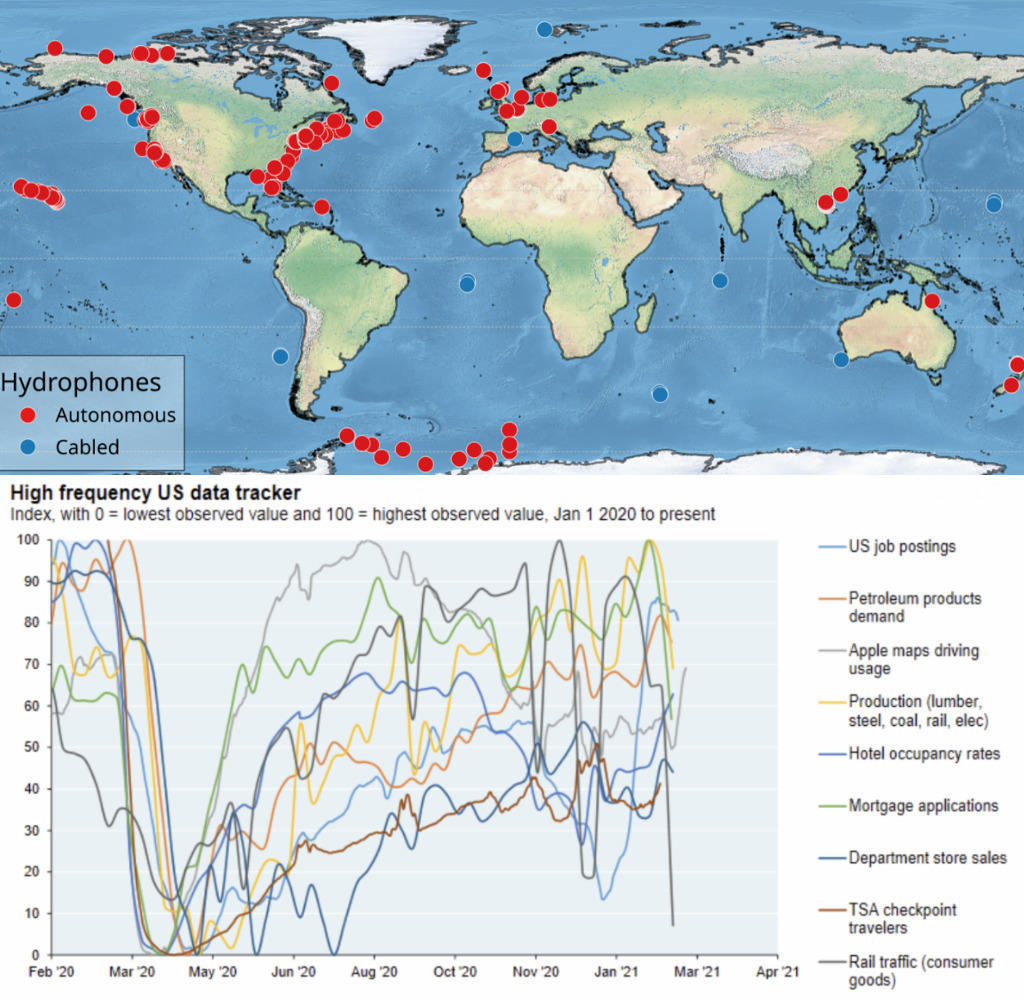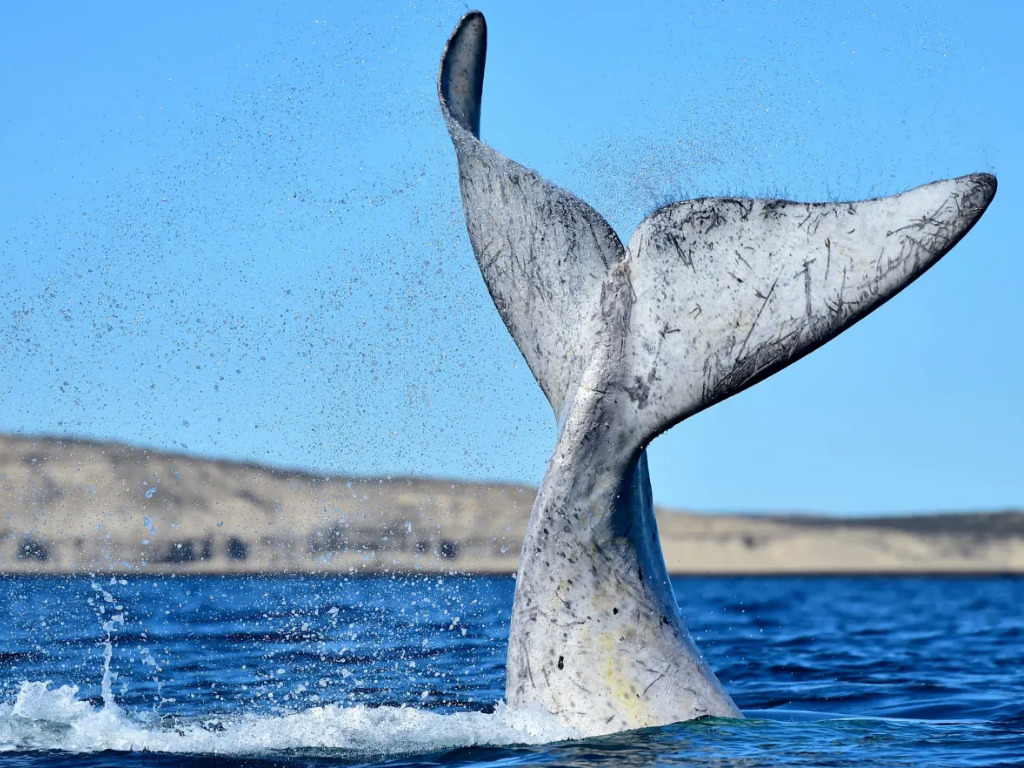Scientists Listening To Ocean Soundscapes Quieted By COVID-19 Note Behavioural Changes In Marine Life
6 Mins Read
Due to the pandemic-induced lockdowns around the world, several human activities that are usually performed in the oceans came to a halt. To monitor and understand the behaviour changes in marine life during this quiet phase, a community of scientists have decided to use over 200 non-military hydrophones to listen to sounds made by animals to navigate and communicate across the ocean. These findings can be instrumental in driving policy change to protect the oceans and the marine life it holds.
Back in 2011, experts started working on the International Quiet Ocean Experiment (IQOE), which was unveiled in 2015 along with the International Quiet Ocean Experiment Science Plan. The targets of these projects were to develop a time series of measurements of ambient sound in oceans spread around the world to understand several sound properties at different frequencies.
Now the IQOE, the Scientific Committee on Ocean Research (SCOR) and the Partnership for Observation of the Global Ocean (POGO), have come together and decided to observe the oceans soundscapes quieted by COVID-19 as several human activities like shipping, tourism and recreation, fishing and aquaculture, energy exploration and extraction, naval and coast guard exercises, offshore construction, and port and channel dredging came to a halt.
The data found through this initiative will become a part of the 2020 quiet ocean assessment and will support inspections of the ocean landscape well into the future. The scientists aim to increase the existing 200 to a total of 500 hydrophones that will record the signals of whales as well as other marine life and the noise levels produced by human activities.
Given that sounds travel deep into the ocean, a hydrophone has the ability to pick up even the lowest frequency signals from thousands of kilometers away. These non-military hydrophones are mostly available along the North American coasts – Atlantic, Pacific and Arctic; Hawaii, Europe, and Antarctica, with some spread out across the Asia-Pacific region.
Apart from the hydrophones recording these sounds, other sea life monitoring tools and techniques like animal tagging will be used to provide a deeper insight into the extent to which noise in “the Anthropocene seas” affects marine life.
In a press release seen by Green Queen, Professor of Marine Mammal Biology at the University of St Andrews, Scotland and collaborator on this study, Peter L. Tyack, said: “Measuring variability and change in ambient, or background, ocean sound over time forms the basis for characterizing marine ‘soundscapes. Assessing the risks of underwater sound for marine life requires understanding what sound levels cause harmful effects and where in the ocean vulnerable animals may be exposed to sound exceeding these levels. Sparse, sporadic deployment of hydrophones and obstacles to integrating the measurements that are made have narrowly limited what we confidently know.”

Assessing the risks of underwater sound for marine life requires understanding what sound levels cause harmful effects and where in the ocean vulnerable animals may be exposed to sound exceeding these levels
Peter L. Tyack, collaborator on this study
Director of the Program for the Human Environment at The Rockefeller University and project originator, Jesse Ausubel, said that the plan initially included designating 2022 as the Year of the Quiet Ocean. “However, due to COVID-19, the oceans are unlikely to be as quiet as during April 2020 for many decades to come. The COVID-19 pandemic provided an unanticipated event that reduced sound levels more than we dreamed possible based on voluntary sound reductions. IQOE will consider 2020 the Year of the Quiet Ocean and is focusing project resources to encourage study of changes in sound levels and effects on organisms that occurred in 2020, based on observations from hundreds of hydrophones deployed by the worldwide ocean acoustics community in 2019-2021.”
New software such as the one led by the University of New Hampshire (MANTA) will be employed to help standardize, visualize and compare the ocean sound recording date. Apart from this, the Open Portal to Underwater Sound (OPUS) is being tested which will encourage the use of acoustic data collected globally.
IQOE will consider 2020 the Year of the Quiet Ocean and is focusing project resources to encourage the study of changes in sound levels and effects on organisms that occurred in 2020, based on observations from hundreds of hydrophones deployed by the worldwide ocean acoustics community in 2019-2021
Jesse Ausubel, project originator

According to the above graph by JP Morgan, the impact of the pandemic is clearly visible in several commercial activities, suggesting that the oceans were relatively quite between late March 2020 to mid-may 2020.
There have been very few opportunities to conduct maritime studies, and those include the start (1945) and stop (1980) of above-ground nuclear testing where experts observed the traces of carbon and tritium and its impact on the ocean’s biology.
Apart from this, the terrorist attacks in New York City and Arlington, Va back in 2001 led to a halt in aviation giving scientists a chance to study and understand the effects of jet contrails on weather patterns. Biologists further studied the stress hormone levels in endangered North Atlantic right whales in the Bay of Fundy revealing increased September stress hormone levels over the next four years as whales begin to migrate to warmer southern waters where they give birth which drew attention to the harmful impact of ocean industrialization on marine life.
Let’s learn from the COVID pause to help achieve safer operations for shipping industries, offshore energy operators, navies, and other users of the ocean. The shocking global effect of COVID-19 on human additions of noise to the oceans can spur maturation of regular monitoring of the soundscape of our seas
Jesse Ausubel, project originator
Ausubel urges all to learn from the pandemic and push for safer operations in shipping industries, offshore energy operators, navies, and other users of the ocean. “We are on the way to timely, reliable, easily understood maps of ocean soundscapes, including the exceptional period of April 2020 when the COVID virus gave marine animals a brief break from human clatter. We invite parties in a position to help to join this global effort on the variability and trends of ocean sound and the effects of sound on marine life. The shocking global effect of COVID-19 on human additions of noise to the oceans can spur maturation of regular monitoring of the soundscape of our seas.”
These findings hope to shed light on the effects of human activities conducted in the oceans and push for policy change once the world restarts its operations, for instance, solutions like slower ships that produce lesser noise or ships running on renewables, or defining traffic patterns that allow for quiet periods enabling the oceans’ ecosystems to thrive can all contribute to protecting our oceans, and ultimately help mitigate the effects of climate change and protect our existence.
Lead image courtesy of Maxi Jonas (AP).




